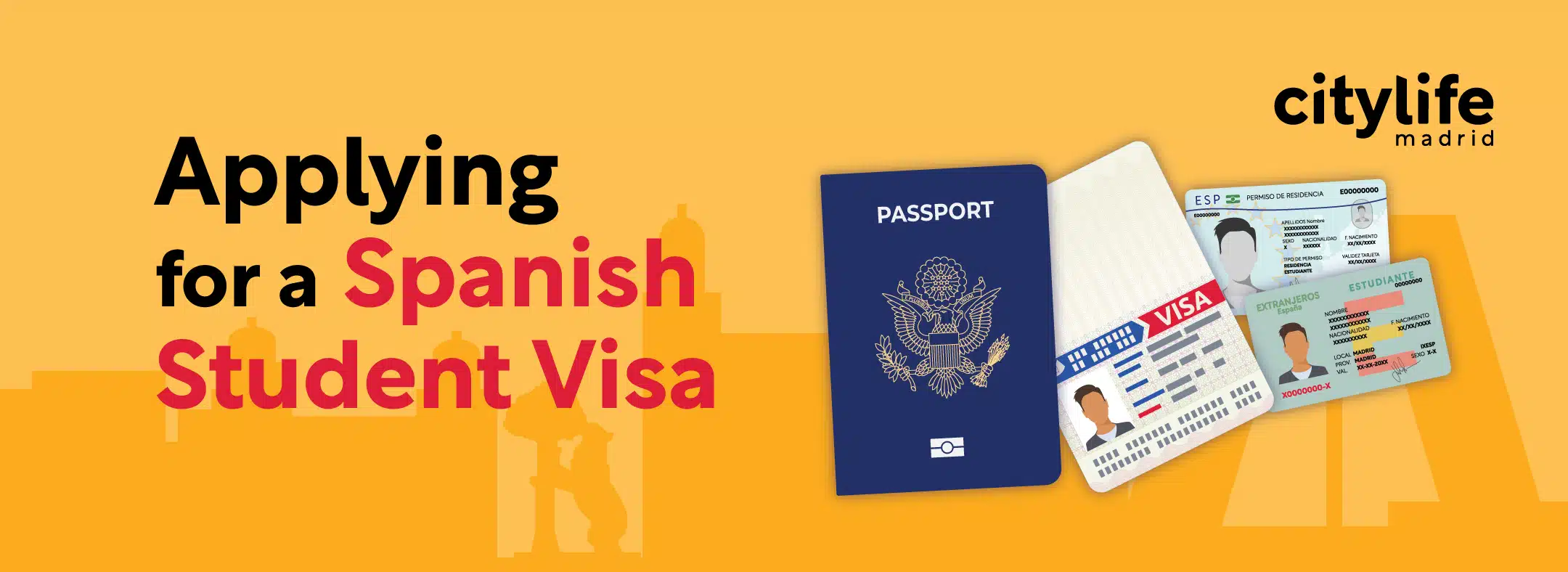
Studying abroad is an increasingly popular phenomenon with the youth of today. It is often a recommended experience for personal growth and intellectual enlightenment. With so many young people flocking to different continents to experience life in a different culture, universities around the world are creating programs to make the process easier for their students. While many programs offer assistance for applying for a Spanish student visa, we find that everyone could use some extra advice for real-life situations. Applying for a student visa is a different process in every country. But always remember that you will need to muster a lot of patience and thorough preparation.
To make sure you have a clear understanding of exactly which documents you need to apply for once you’ve arrived in Spain, make sure to check out our Spain Immigration Guide. If you have read the guide already and still have some doubts as to which documents you need, please fill out our free Immigration Support Form so we can point you in the right direction.
In this article, we have outlined all the basics of applying for a Spanish student visa. We will explain what the visa is for, who needs it, how to apply and what to expect from the application process. Take a look at our content overview to choose exactly what you want to read about, or keep reading to learn everything we have to share!
While reading this guide, please keep in mind that each consulate/embassy around the world has different requirements and processes for visa applications. Therefore this guide is a general outline intended to help you get started and should not be used as an official guideline for your application.
Important: The Citylife team has collected the information below via intense research in collaboration with MTS Relocation & Consulting Services and Proyecto Océano, two very known legal & relocation companies in Spain. Please keep in mind that we are not directly related to any legal or government departments. We have tried to break down the most common situations and requirements for internationals, students and expats, coming to live in Spain. We cannot speak for everyone’s specific case nor can we speak on the specifics of every autonomous region in Spain. Please remember to use this article as a compliment to your own research on official government sites.
1. What is a Visa & What Does it Allow?
A visa is a permit that gives the applicant permission to stay in a country or region with limited permissions for a specified period of time. The visa is placed inside the applicant’s passport after successful application and will have those permissions displayed on it. These visas can give a variety of permissions, from allowing someone to work, to study or to simply be present in the country as a tourist. For information on the different types of Spanish visas you can apply for, take a look at the official government website.
The Spanish student visa is arguably the most common option for those looking to move to Spain for a period longer than 3 months. However, it’s important to understand that moving to Spain with a student visa means your time in Spain will be limited to a certain set of rights and privileges. For example,student visa holders must commit to a minimum amount of hours in a classroom of a legitimate educational institution. Additionally, the Student Visa only permits applicants to work for a maximum of 30 hours a week*.
Another point to keep in mind is that most student visas are granted per semester. This means that holders must renew their documents after each semester or after each academic year if they wish to stay in Spain longer. The length of your Spanish student visa will be determined by your period of study, which is stated by the school in an official document that you must include in your application.
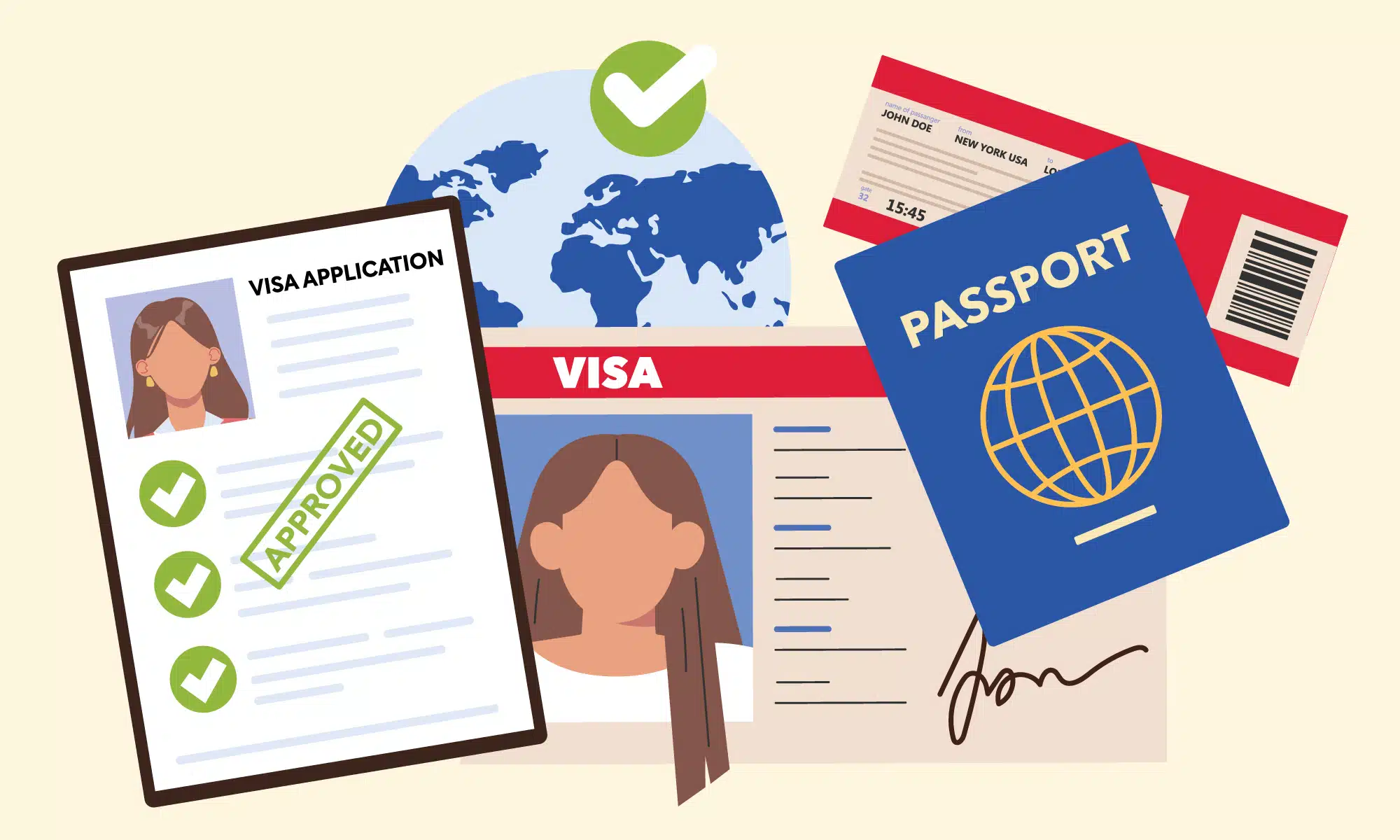
*Majority of Spanish student visas are granted with a “Permiso de Trabajo”, which can be found printed on the visa inside the passport. If a visa has been subjected to some limitations and this permission was not granted, applicants will need to apply for an additional “Autorización de Trabajar por Estudios” if they wish to work during their time of study in Spain.
Did you know that a Spanish student visa is only the first step to getting your legal documents sorted? Once you arrive you will also need to apply for the Empadronamiento, The TIE and possibly even a Social Security Number.
Make sure to check out our Spain Immigration Guide to learn about everything you need to apply for to make your stay in Spain legal. If you want additional support for your legal papers, check out our partner at MTS Relocation Spain, who can help you along the way!
2. How to Apply for a Spanish Student Visa
The first step to applying for your Spanish student visa is finding the closest Spanish Consulate to your home. Once you’ve found your consulate you should review their online instructions for the visa application process (you might need to call them for this information), their opening hours and if you need to make a series of appointments for your application. Once you have it clear, you can start collecting the required documents.
2.1 What Documents do you Need to Apply for the Spanish Student Visa
One of the most important things to do when starting your Spanish student visa process is to look over the list of required documents and assess the time frame you will need to collect them. This way you can ensure you will have a realistic amount of time to complete everything before your appointment. Below we’ve prepared a list of typical requirements for a visa application to give you an idea of the kind of paperwork you will need to gather. However, please remember every consulate has its own unique requirements and you will always need to confirm with them before starting!

Documents Required for a Spanish Student Visa Application:
- Acceptance letter from your school in Spain (original & copy)
- Security background check (original & copy)
- Updated passport that will NOT expire while you are away and has free pages for visas & stamps
- Letter from your doctor stating you are able to travel
- Proof of insurance for the duration of the trip
- At least 2 passport sized photos
- Notarised proof of funds to support yourself or notarised proof of a second party supporting you (amount often differs from consulate to consulate)
- Proof of accommodation
- Confirmation of flight to Spain (return flight may not be required)
Important: Many of the documents listed above require appointments, processing times and multiple steps that you may not expect. Make sure to start as soon as possible to avoid unnecessary stress.
2.2 Making & Attending your Student Visa Appointment
As we mentioned already, each consulate operates differently from the next. This also relates to the process of making your appointment. Some consulates will schedule your appointment by phone, others online and some may not even require that applicants make an appointment at all. Whatever method you use to make your appointment, the most important thing is to make sure you show up early with all the required documents. If you happen to forget even one of those documents you will most likely be turned away and will have to start again from the beginning.
Keep in mind that they will take your passport along with all the other documents for your application. You will not be able to use your passport until it’s returned to you. Once your paperwork has been submitted, the consulate will inform you of the next steps.
2.3 After You’ve Submitted your Paperwork
On average it should take between 1-3 months to issue your student visa. The duration completely depends on the size of the consulate, the number of applications they are dealing with and their operational hours. Most consulates will give you a time frame in which you can return to pick up your passport. Depending on your consulate you may have to call them regularly to keep up on the progress. Alternatively, they might contact you once it’s ready or even mail the passport to your residence.
If your application is approved, your visa will be printed in your passport. The validity dates of the visa may be as long as the duration you originally applied for. But do not worry, this can be resolved by completing some additional paperwork once you’ve arrived in Spain. See more on this topic in Chapter 4. If you have any additional questions about this, please fill out our Legal Support Form below and we can help you!
3. Applying for a Spanish Student Visa from Within Spain
For several years there has been the possibility of applying for the Spanish student visa from within Spain*. However, the process depends heavily on various circumstances and is nearly impossible without the assistance of a lawyer. Due to the complications, incredibly long waiting times and potential costs involved, we highly advise against it as an alternative method of application. Instead, we recommend planning your visa application ahead of time, ensuring that you have planned in some buffer time before you are required to enter Spain and be present at your classes.
*There have been unconfirmed reports that in May of 2025 the Spanish government will eliminate the option of applying from within Spain completely. We will continue to monitor things carefully and update this page with any confirmed updates.
4. What to do Once you’ve Arrived in Spain
When you have your student visa, your plane ticket, and your bags packed you can finally come to Spain! With your student visa inside your passport, you’ve officially finished the first half of your legalization process.
Depending on many factors, you will most likely need to complete a few more steps to ensure you’re officially living in Spain legally. These steps require applying for even more documents known as the Empadronamiento (Registry of Residence) and the Tarjeta de Identidad de Extranjera (Foreigners Identity Card). These documents, in partnership with your visa, will authenticate your stay in Spain for the duration that you originally applied for*. The TIE card in particular will act as your photo identification during your stay and it will also be the document that you will need to renew should you decide to extend your stay in Spain.
*In many cases, a Spanish student visa will only display a validity period of 90 days instead of the 7+ months that were originally applied for. This is done on purpose, as a way to control that foreigners apply for the TIE card upon arrival. As mentioned above, the TIE card will display the full validity dates of the applicant, therefore covering the entire period of study.

To determine if you are required to apply for the TIE card once you arrive, please take a look at our comprehensive article about Spanish Immigration. If you already know if you will need it, you can check out our step-by-step guide to applying for the TIE.
5. Renewing your Spanish Student Visa
The process of renewing or extending a Spanish student visa can be overwhelming for anyone! If you’re struggling to figure it all out, we recommend contacting MTS Relocation & Consulting Services! They offer many services to help their clients prepare for renewal but also other legal procedures like the Empadronamiento, Autorización de Regreso, TIE Renewal, Social Security, Spanish citizenship and so on. From simply making your appointment to preparing all the documents!

So if you want to make your life easier, get in touch with MTS to organize a free email consultation and get a free quote for their services! They offer discounted rates of up to 50% off to international students! Simply follow the link below to contact them for a free quote!
6. Get Personalized Support – Fill out our Free Spain Immigration Form
You still have questions or need more specific advice? If would like us to connect you to our professional partners to get a free email consultation and a non-binding quote at discount, then simply fill out the form below! Use the comment section of the form to indicate your specific question(s) and we will either answer it with our best advice or we will forward it directly to our expert partners. As mentioned in or guide above we closely work with MTS as well as the immigration lawyers at Proyecto Oceano to provide you with the best information & support possible.
Please note: By sending the form below, you automatically agree that we can forward your data to MTS – Relocation & Consulting Services as well as Proyecto Océano so that they can review your case and provide you with further advice if needed!

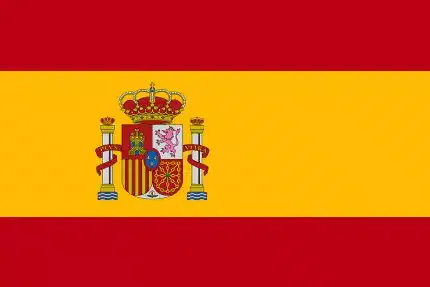

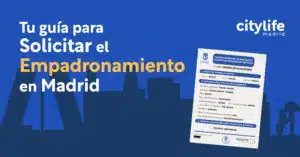

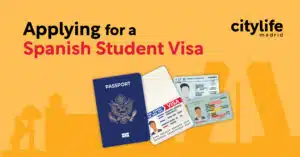
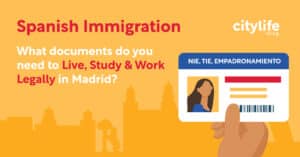
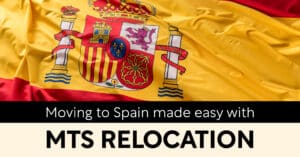

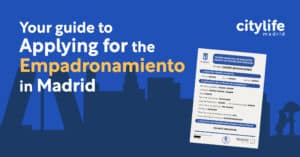

7 Comments. Leave new
hello are there any instructions on how to apply for student visa if i am already in spain?
woow th is really awesome thank you
Hey Senad,
You receive an acceptance letter from the school you’re attending from the company employing you.
Thanks for sharing this information! It was a great support during my visa process! Hope to see you soon in Madrid Leah:-)
I’m glad it helped Irene! See you soon 🙂
thank you!
very useful post
Your Welcome Eugen!